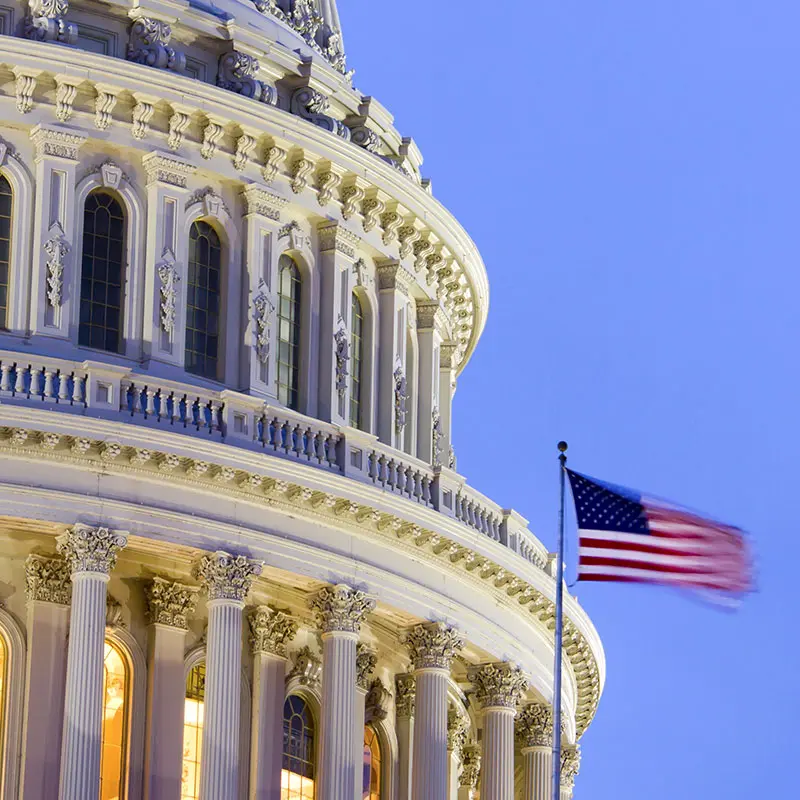‘Deep dissatisfaction’ Among Electorate Drives Call for Voter Reform

01/16/2025
As Congress begins its work ahead of President-elect Donald Trump’s second administration, voters across the political spectrum appear disengaged from American politics and receptive to system reforms, according to a poll issued Thursday by the UMass Lowell Center for Public Opinion and the American Academy of Arts and Sciences.
Last fall, before the 2024 presidential election, the pollsters surveyed 3,200 likely voters across the country. Results show a wide swath of respondents distrust the federal government and are open to reform. Seventy-eight percent of the polltakers – including 66% of Democrats, 87% of Republicans, and 90% of independents – said they could only trust the federal government to do what is right some or none of the time. Only 23% of respondents said they could trust the government almost always, or most of the time.
Poll results show voters have “deep dissatisfaction” over how the government is run, according to UMass Lowell’s John Cluverius, the center’s director of survey research and an associate professor of political science. Seventy percent of respondents believe about half or more of government officials are corrupt, while 80% agreed strongly or agreed somewhat that government officials don’t care what people like them think. Further, 69% agreed strongly or agreed somewhat they did not have a say in what the government does.
The American Academy of Arts and Sciences (the Academy) pursued the poll as part of its nonpartisan commitment to strengthening democracy.
“We convened listening sessions across the country to hear what people had to say about American democracy. The frustrations and hopes that they voiced shaped the Academy’s Our Common Purpose report, which we released in 2020. The report’s 31 recommendations include changes to make our system more representative,” said Academy President Laurie L. Patton. “The results of this poll point to ways we can continue to engage Americans in the meaningful work of coming together to strengthen constitutional democracy.”
Survey responses indicate voter dissatisfaction may be fueling support for reform:
- 53% of respondents said the way members of Congress are elected should change, larger than the 47% who said the system should remain the same.
- 63% of respondents said the United States would be better off with more than two major political parties, signaling support for a broader multiparty democracy, while 37% of respondents preferred a two-party system.
A set of poll questions that laid out a hypothetical reform of Congress showed respondents favor a system in which legislators represent fewer constituents, theoretically improving lawmakers’ ability to advocate for voters.
When asked whether the U.S. House of Representatives should be expanded by 150 members for a new total of 585 legislators, respondents opposed the idea, 56% to 44%. But, when language in a companion question suggested adding 150 members would make congressional districts smaller and allow representatives to better learn their constituents’ needs, respondents supported the change, 60% to 40%.
“By merely suggesting that increasing the size of the House would make members of Congress closer to their constituents, support for that approach skyrocketed,” Cluverius said. “The American people are sick and tired of a system they see as corrupt, unresponsive, and frustrating. Historically, Americans have not had positive views of Congress, but despite this, they’re willing to make the body larger to improve it.”
Conducted from Sept. 25 to Oct. 1, 2024, the survey carries a margin of error of plus or minus 1.8 percentage points. Funded by the American Academy of Arts and Sciences, the nonpartisan poll was designed and analyzed by the UMass Lowell Center for Public Opinion and fielded by YouGov. Detailed poll results, including topline and full methodology, are available at www.uml.edu/polls.
UMass Lowell’s Center for Public Opinion presents events and polling on political and social issues to provide opportunities for civic engagement, experiential learning and real-world research. The center is a member of the American Association of Public Opinion Research (AAPOR) Transparency Initiative.
